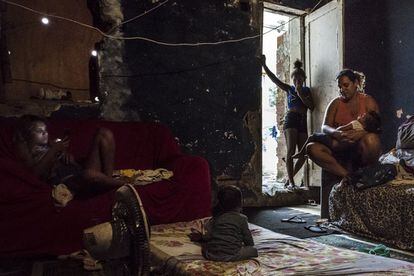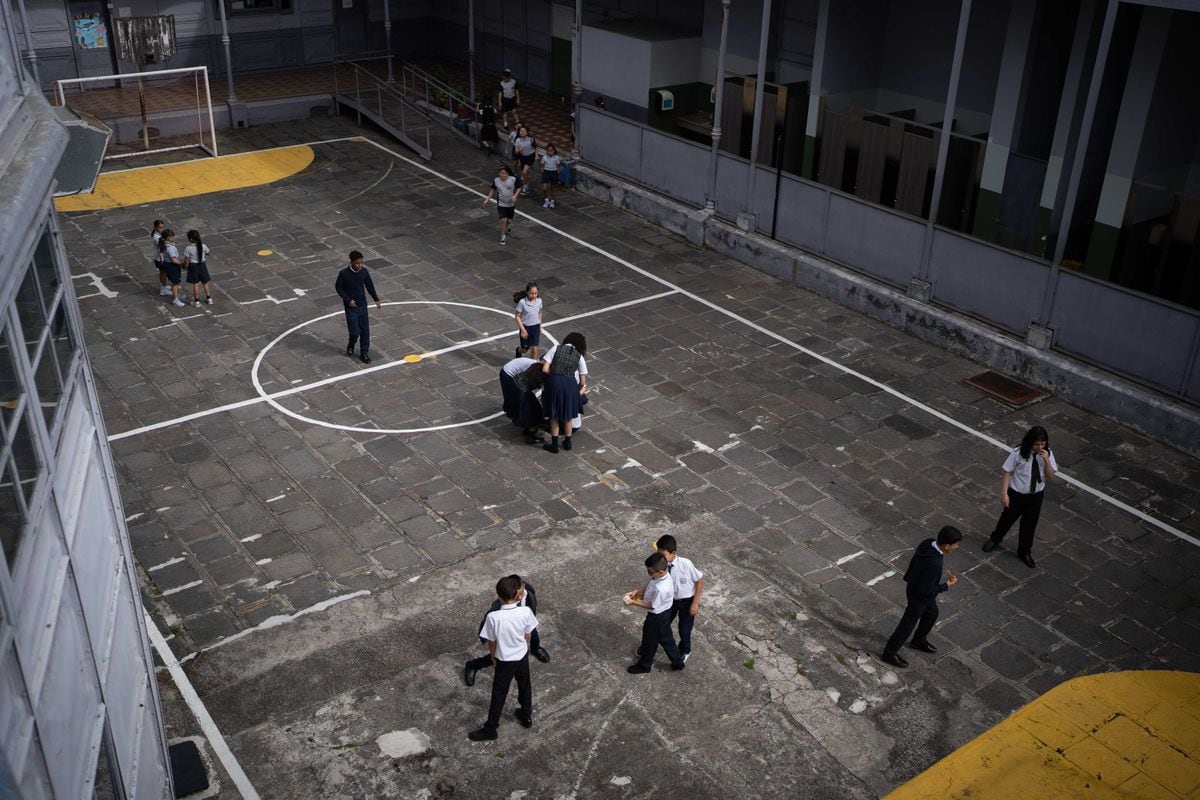A family rests at home in a favela in Rio de Janeiro (Brazil).Tariq Zaidi
The great Colombian writer Gabriel García Márquez titled one of his most celebrated stories as
History Repeats itself
.
The title could serve to frame the current global energy crisis, which has common ingredients with the situation of the 1970s.
However, it is not useful to describe the recent evolution of macroeconomic policies in Latin America.
Taking careful note of past economic crises, many of the region's central banks were the first to perceive that inflation was not as transitory as previously believed, nor did it only affect a few goods and services.
The early reaction of monetary policy in the region has been key to providing stability to exchange rates and leaves Latin America well positioned to face the period of interest rate increases in advanced economies that has just begun.
In a region hit by high levels of inequality and poverty and with recent social tensions, the governments of the region also quickly saw that it was necessary to take fiscal measures to mitigate the impact of the increase in energy prices on their populations.
This does not mean that the region does not face a complex economic situation with many risks on the horizon.
Although the outlook for Latin America for 2022 remains positive, the outlook is less optimistic for the next two years.
Latin America is expected to grow slightly faster than advanced economies, which will be insufficient to accelerate a process of economic convergence that was already slow before the pandemic.
In this complex and uncertain global macroeconomic environment, preserving macroeconomic stability while continuing to support the most vulnerable is key, not only from a macroeconomic but also an equity point of view, as the sharp rise in prices of basic products affects low-income households to a greater extent.
Following the significant fiscal support that many countries implemented to deal with the coronavirus crisis, the region faces the challenge of recovering fiscal space while supporting vulnerable groups, especially as high inflation persists and growth weakens.
This space would make it possible to meet pressing spending needs in education and social protection, key to boosting long-term growth and reducing the high levels of inequality and poverty.
There is space in all countries to improve the efficiency of public spending.
This also includes directing social aid towards the most vulnerable.
One example is measures to mitigate the impact of rising energy prices.
These measures are necessary and are working,
but for the moment they benefit everyone equally and could be more focused on vulnerable households.
There are also opportunities in many countries to increase tax revenues by reducing tax exemptions and preferential treatment, fighting tax evasion, and increasing the progressivity of taxes, especially income taxes.
With high levels of inflation and rising costs of living, strengthening competition in the markets for goods and services, a pending challenge in most of the countries in the region, is particularly relevant, since it would facilitate the access of companies to inputs at lower prices. costs and from households to goods and services at lower prices.
Simplifying regulations to facilitate the creation and entry of companies and the reduction of trade barriers, particularly in basic products, would facilitate markets with a higher degree of competition.
Without increasing public spending, this would lower prices and costs, generating particularly pronounced benefits for households in lower income deciles.
In such a complex macroeconomic environment, there is a risk that other key areas will somehow be left behind.
This includes efforts to boost productivity and reduce inequalities, two longstanding challenges for the region.
Boosting productivity and reducing inequalities would require a comprehensive reform agenda, but there is one area of particular importance: education.
During the pandemic the region had its schools closed for a long time.
For example, in Chile, Mexico or Colombia, schools were closed for more than 70 weeks during the pandemic, twice as long as the average for OECD countries.
Poor internet connectivity also made distance learning difficult, especially in the most vulnerable households.
Pre-existing large educational inequalities are likely to have widened further, with a significant detrimental impact on productivity and growth in the medium term.
Allocating more resources to the early stages of education (preschool and primary) can help mitigate the effects of the pandemic, make education systems more equitable and strengthen growth prospects in the medium term.
There are reasons to be optimistic about the region's ability to weather the difficult outlook currently facing the world economy.
Preserving macroeconomic stability, continuing to support the most vulnerable, and redoubling efforts in education would help the region realize its great potential and achieve higher levels of economic activity and well-being.
Álvaro Pereira
is the OECD's acting chief economist.


/cloudfront-eu-central-1.images.arcpublishing.com/prisa/AWQDFA55JRFZ7EFY4XGGS3VAVQ.jpeg)


/cloudfront-eu-central-1.images.arcpublishing.com/prisa/ZU5KUJFBSRGVVM2SXJTZBZP3XI.jpg)


/cloudfront-eu-central-1.images.arcpublishing.com/prisa/GX6T7JPQYZMTYR575K7UVIU6V4.jpg)
